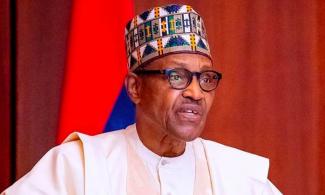
It also means that Nigerians are left with a lesser amount of money than they used to have after buying fuel.
A petrol index report done by Picodi.com showed that the purchasing power of the average Nigerian for petrol has reduced drastically under President Muhammadu Buhari’s regime.
It also means that Nigerians are left with a lesser amount of money than they used to have after buying fuel.

According to the analysis of petrol prices and wage purchasing power in Nigeria and worldwide carried out by the organisation, the monthly income of an average Nigerian – put at ₦67,484.00 – could afford 501 litres in 2019, but that has been reduced to 391 litres in 2022.
The report which examined the dynamics of petrol price change in Africa and around the world in the first quarter of 2022, says, "In Nigeria, after conversion to dollars, the petrol price is one of the lowest in Africa – 6th place out of 7 accounted for countries at $0.42/litre. Low petrol prices can also be enjoyed by citizens of Algeria ($0.31/litre) and Egypt ($0.52/litre).
"This year we also checked the relation between petrol prices and local average wages.
"With the average wage, drivers from South Africa (865 litres), Algeria (764 litres) and Egypt (437 litres) can buy the most petrol.
"According to the newest data presented by Numbeo, the average wage in Nigeria is ₦67,484.00 net monthly. This means that an average Nigerian for an average wage can buy 391 litres of petrol. Compared to the previous year’s petrol index, the purchasing power of the average Nigerian wage in the context of petrol has slightly decreased.
"This is what the petrol index in Nigeria looked like in the last few years: 2019 – 501 litres; 2020 – 539 litres; 2021 – 431 litres; 2022 – 391 litres.
"Prices of petrol around the world: prices did not increase everywhere.
"Having substantial raw material resources saved some countries from the increase in the price of petrol. Countries such as Saudi Arabia, Kuwait and Qatar were not affected by the world’s economic situation. The governments of countries such as Columbia, Ecuador and Kazakhstan have decided to either freeze or set the upper limit on petrol prices.”